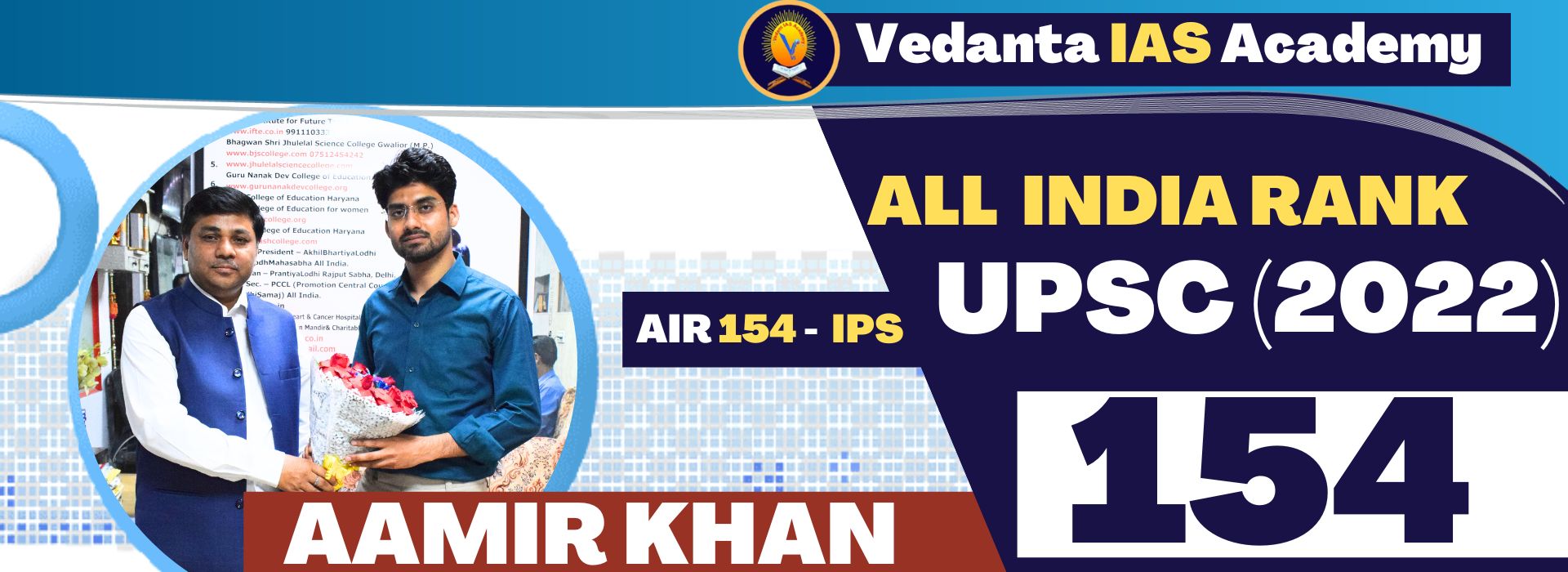
Online Courses

Study Meterial





Aspirants must familiarize themselves with the UPSC Exam syllabus and pattern for both Prelims and Mains.
The Preliminary Stage acts as a screening test to qualify candidates for the Mains stage.
The General Studies paper in Prelims covers various subjects such as Indian Polity, Geography, History, Indian Economy, Science and Technology, Environment, and International Relations.

In recent years, the number of applicants for this stage has been substantial, with over 11 lakh candidates applying in resent year and more than Ten lakhs in last years.
Understanding the syllabus for IAS Prelims is of utmost importance, as it serves as a screening test to qualify candidates for the next stage, which is the Mains Exams.
Aspirants aiming to crack the UPSC Exam must acquaint themselves with the exam pattern and the detailed IAS Exam syllabus before embarking on their preparation journey.
For those planning to appear in UPSC 2024, it is recommended to commence their preparations in 2022-2023.
Adequate time of around one year is essential to excel in the UPSC examination. This timeline allows aspirants to systematically strengthen their knowledge base, clarify doubts, and develop a well-structured study plan.
Preparing for the Civil Services Examination is no easy task, and it requires dedicated effort and perseverance. Aspirants should focus on comprehensively covering all subjects and topics mentioned in the UPSC Prelims syllabus.
| UPSC Preliminary | |
|---|---|
| Stage | UPSC Preliminary Examination |
| Papers | General Studies Paper-I |
| General Studies Paper-II (CSAT) | |
| Number of Questions | GS Paper-I: 100 |
| CSAT: 80 | |
| Total Marks | GS Paper-I: 200 |
| CSAT: 200 | |
| Negative Marking | 1/3 of the total marks deducted for every wrong answer |
| Time Allotted | GS Paper-I: 2 Hours (9:30 AM - 11:30 AM) |
| CSAT: 2 Hours (2:30 PM - 4:30 PM) | |
| Paper | Subject | Marks |
|---|---|---|
| Papers-I | Essay (candidates can choose the medium of writing) | 250 |
| Papers-II | General Studies – I (Indian Heritage & Culture, History & Geography of the World & Society) | 250 |
| Papers-III | General Studies – II (Governance, Constitution, Polity, Social Justice & International Relations) | 250 |
| Papers-IV | General Studies – III (Technology, Economic Development, Biodiversity, Security & Disaster Management) | 250 |
| Papers-V | General Studies – IV (Ethics, Integrity & Aptitude) | 250 |
| Papers-VI | Optional Subject – Paper I | 250 |
| Papers-VII | Optional Subject – Paper II | 250 |
The Mains stage of the UPSC Civil Services Examination consists of seven papers, each carrying 250 marks. Paper-I is an Essay paper where candidates have the flexibility to choose the language of their preference for writing.
Papers II to V cover the General Studies subjects, including Indian Heritage & Culture, History & Geography of the World & Society, Governance, Constitution, Polity, Social Justice & International Relations, The topics covered are Technology, Economic Development, Biodiversity, Security & Disaster Management, and Ethics, Integrity & Aptitude.
Finally, Papers VI and VII are dedicated to Optional Subjects, and candidates have to write papers I and II for their chosen optional subject, each carrying 250 marks.
The UPSC Mains examination is the crucial second phase of the Civil Services Examination, preceded by the Prelims. Successful candidates in the Prelims qualify for the Mains, which assesses their in-depth academic knowledge and their ability to present their understanding effectively within a time limit.
Only the candidates who attain a minimum of 25% marks in both the qualifying language papers will have their other papers (Essay, General Studies, and Optional Subject) evaluated. If a candidate fails to qualify in the language papers, their marks in other papers will not be considered.
The General Studies papers encompass a broad array of subjects. Here is the syllabus for each General Studies paper:
Candidates are required to write essays on multiple topics, demonstrating effective expression and organization of ideas.
The UPSC Mains examination tests candidates' holistic understanding and competence in various subjects, shaping them into well-rounded civil servants.
Qualifying Papers on Indian Languages and English: Structure and Pattern The UPSC Mains examination includes two qualifying papers in Indian Languages and English.
These papers carry 300 marks each and are intended to assess candidates' language proficiency and expression abilities. The structure and pattern of the language papers are as follows:
Candidates can choose any language from the Eighth Schedule of the Constitution of India or opt for English for these qualifying papers.
The main objective of these papers is to evaluate candidates' ability to read and comprehend serious discursive prose and express their ideas clearly and accurately, both in English and the chosen Indian language.
These qualifying papers are essential to test candidates' language skills and their capability to effectively communicate and express their thoughts.
They play a vital role in determining the candidates' eligibility to continue with the rest of the Mains examination. A strong performance in these papers is crucial for advancing to the evaluation of other papers in the UPSC Mains.
The UPSC Mains examination provides candidates with a wide range of 48 Optional Subjects to choose from, including subjects related to Literature in different languages.Candidates are required to select one subject from the list of Optional Subjects provided below:
Candidates have the flexibility to choose any one of these Optional Subjects, based on their interests, background, and expertise.
Below is a comprehensive list of Optional Subjects for the UPSC Mains examination, along with the respective syllabus for each subject.
Candidates can refer to the linked article to check the success rate of optional subjects. It provides insights into the performance of candidates in the UPSC examination based on their chosen optional subjects.
Aspirants seeking guidance from toppers regarding the selection of optional subjects can visit the UPSC Toppers' Optional Subjects page, which offers information about the optional subjects chosen by top-rank holders in previous years.
The UPSC Interview, which is also referred to as the Personality Test, represents the concluding phase of the Civil Services Examination.
There is no specific defined syllabus for the interview. Questions are asked on a wide range of issues to assess the candidate's suitability for a career in civil services.
Candidates qualifying for the UPSC Mains Examination will be invited for the Personality Test conducted by a board appointed by the UPSC. The interview aims to evaluate the candidate's mental qualities, analytical ability, and overall suitability for civil services.
It is designed as a purposive conversation, seeking to understand the candidate's personality traits and thought process. The interview assesses the candidate's perspective on various issues and their ability to handle complex situations.
The Interview test carries 275 marks, and the written examination (Mains) is 1750 marks, making a Grand Total of 2025 Marks for the final merit list preparation.
Candidates should note that the UPSC Syllabus 2024 remains unchanged from 2023 and 2024. Aspirants can refer to the existing UPSC syllabus to prepare for the examination confidently.
Ans:-
The UPSC syllabus covers various subjects under different headings in the General Studies (GS) papers.
GS Paper 1 includes History, Geography, and Indian Society. GS Paper 2 covers Indian Polity, Governance, Constitution, and International Relations.
GS Paper 3 focuses on Indian Economy, Science & Technology, Agriculture, and Environment. GS Paper 4 focuses on Ethics, Integrity, and Aptitude.
Ans:-
The application form fee for UPSC is Rs. 100 for general category candidates. However, there is an exemption for SC/ST/PH categories and female candidates who are not required to pay any application fee.
For detailed information on the application process and fee, candidates can visit the UPSC Online Registration Application Form page.
Ans:-
Yes, the IAS (Civil Services) Examination is renowned as one of the toughest examinations in the country. The UPSC syllabus is vast and comprehensive, testing candidates' knowledge in multiple areas of interest.
Due to its extensive coverage, it is considered challenging. However, with a well-planned strategy and diligent preparation, aspirants can cover the syllabus effectively. For guidance on preparing for the IAS Exam, refer to the IAS Exam Strategy in the linked article.
Pillar No 389, D-11/156 East Metro Station, Sector 8, Rohini, Delhi, 110085